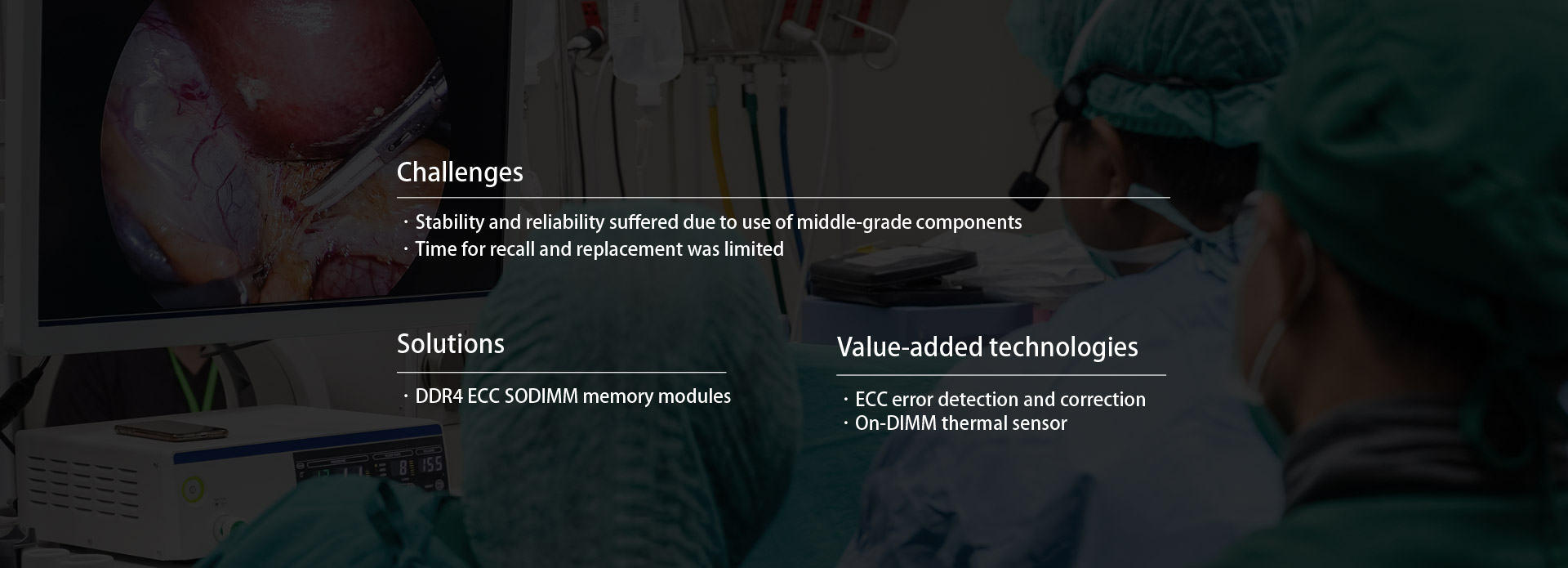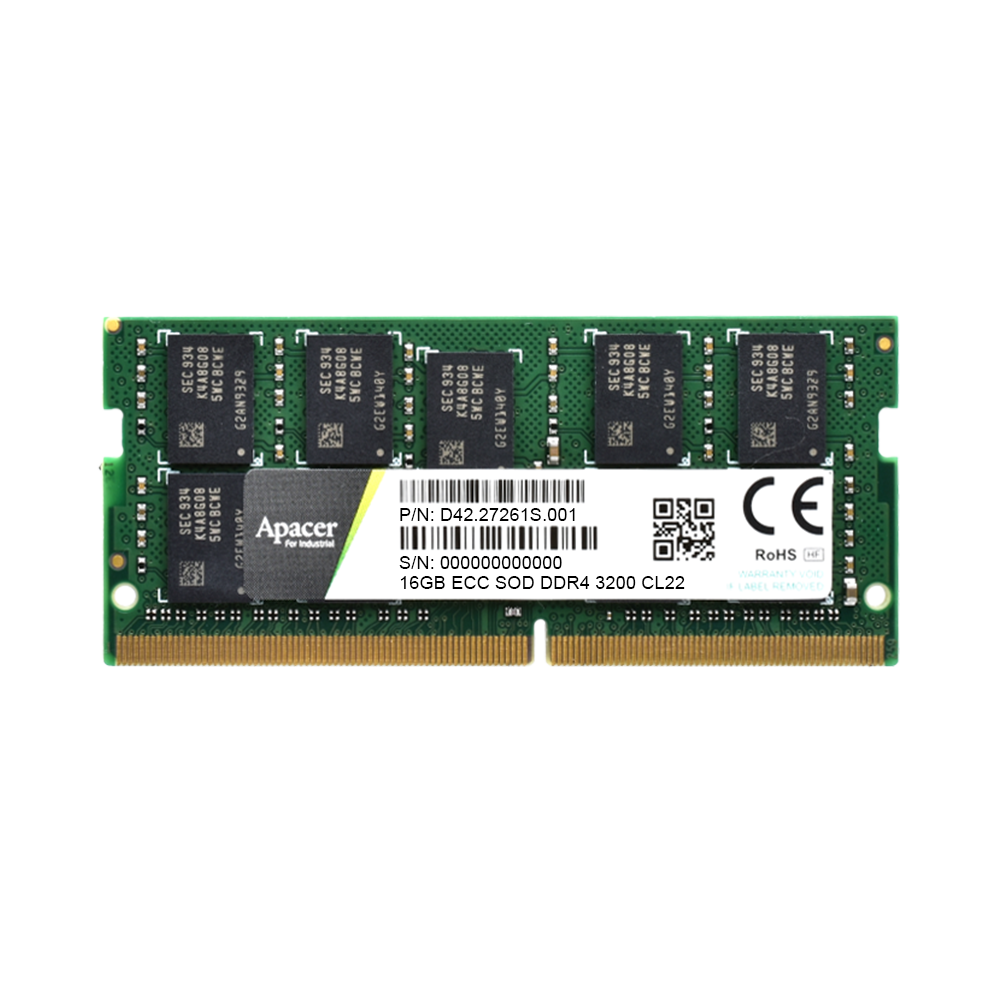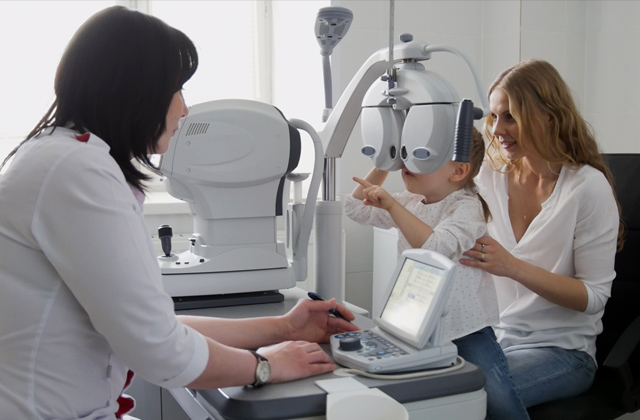
This client is a high-tech operation engaged in the research, development, production, and sales of electronic endoscopic equipment, most of which requires one or more DRAM modules. Thanks to a systematic product layout centered on the field of endoscopic diagnosis and treatment, their current product range includes 4K ultra-high-definition endoscopy systems, optical magnification endoscopes, gastrointestinal endoscopes, nasopharyngoscopes, and bronchoscopes. These devices are used in clinical departments such as gastroenterology, otolaryngology, respiratory medicine, emergency response medicine, and ICUs.
Challenges
The client had originally sourced its memory modules from a variety of manufacturers, experimenting in the design stage with both commercial- and industrial-grade DRAM memory modules. They chose to use affordable modules from local suppliers, and early tests seemed to confirm that these modules were suitable for their applications. However, as their products shipped worldwide and were subject to the rigors of daily operation, their customers eventually began to report issues with stability. This occasionally led to system errors, which led to customer complaints. The client became worried that this would lead to a large-scale product recall which might require replacements as well as further experimentation and testing. They wanted to be able to build more stable and reliable devices.
Solutions and Technologies
The client shared their concerns with Apacer and their team of highly experienced engineers and memory module specialists. The team began by analyzing the client’s basic system to ensure full compatibility between all memory, storage and other computing devices used in the system. They traced the issue to the DRAM modules the client had been relying on, which turned out to occasionally be constructed from middle-grade components.
The team recommended that the client switch to Apacer’s DDR4 ECC SODIMM memory modules. These are made exclusively with only top-end ICs sourced directly from world-leading manufacturers. This alone would make a massive difference regarding long-term stability and consistency. But there were other advantages to these memory modules. They also feature ECC error detection and correction, which also improves stability, as well as on-DIMM thermal sensors so production staff could ensure operating temperatures remained suitable.
Results and Benefits
The client was very pleased with the team’s suggestion and placed an order for DDR4 ECC SODIMM memory modules, which made it into their next shipment of endoscopy devices. Since their customers also reported positive results with the new devices, the client contacted Apacer again to discuss the DRAM modules they might require for their next project. Apacer is looking forward to a long and fruitful collaboration with this client.




